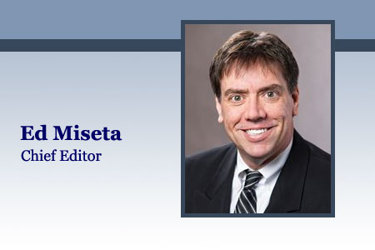Is It Time To Update The Drug Approval Process?
By Ed Miseta, Chief Editor, Clinical Leader

Congressman Fred Upton, who currently serves Michigan’s 6th District, likes to marvel at the technology changes that have occurred in his lifetime. Years ago, disease diagnosis was based on clinical symptoms. Drug approvals at the time were, accordingly, based on the evaluation of symptoms.
Today much has changed. Indications of illnesses are now measured at the molecular level. We can determine the proteins and enzymes that cause the growth of cancer and now have new and novel ways of detecting and stopping that growth. In addition, computers and networking have evolved in amazing ways as well. “Patients, doctors and scientists are now linked like never before,” says Upton. “These technologies are the future of medicine.”
Unfortunately, U.S. regulatory policy has not changed to keep pace with the transformation occurring in computers and medicine. As a result, Upton believes opportunities are being missed. Speaking at the recent grand opening of the MPI Research Translational Imaging Center, Upton noted for pharma and biopharma companies, the biggest frustration today is the U.S. regulatory policy toward drugs. Compared to advancements made in other areas, he believes this policy is currently stuck in a time machine.
 |
|
Congressman Fred Upton, MI-06 |
Fortunately, he also believes that is about to change. There are members of congress that have committed, on a bi-partisan basis, to making changes to the process the government uses to approve new medicines. The effort, dubbed 21st Century Cures, has politicians working with universities, industry professionals, philanthropists, and patient groups to determine what exactly needs to change.
The goal of 21st Century Cures is to change the process currently in place, to make it work better and to foster future change. “The support we have received thus far has been very positive,” says Upton. “We have the support of the number two democrat and republican leaders in the House (Congressmen Hoyer and Cantor). We believe this effort is showing great promise and will eventually lead to more jobs in America as well as cures that will change the world.”
The changes proposed by 21st Century Cures will not occur overnight. The House Energy and Commerce Committee, chaired by Upton, will first hold a series of roundtable sessions to gather advice (as well as advance ideas) on how to streamline the approval process and advance collaboration efforts. This will occur over the next several months.
“We also have to encourage personalized medicine,” says Upton. “A big part of that is gaining a better understanding of the human genome and examining the biology of illnesses at the molecular level. In its current form, the FDA often seems ill-equipped to handle this scientific reality.”
The initiative will also seek to harness the power of social networks. Upton believes the FDA often seems unwilling or unable to welcome these new tools, noting the recent FDA action that shut down a key offering from 23andMe, a firm seeking to empower individuals by providing them with individualized health information.
Efforts will also be made to make the clinical trial process more efficient and affordable. Using tools and social networks currently available will allow clinics to better target and monitor patients. Finally, an attempt will be made to modify the risk culture in place at the FDA. Upton feels the arsenal of tools currently available will allow this to be done while avoiding mishaps and maintaining safety. This process may entail more frequent accolades from congress when the FDA accepts additional risk, instead of simply criticizing the agency for safety lapses.
“We also need to push for better industry partnerships,” states Upton. “The Accelerating Medicines Partnership Initiative recently advanced by the NIH is a big step in that direction. This is a new collaboration between pharma companies and the government. We will also need a structure in place at the FDA that encourages greater collaboration between scientists, doctors, data analysts, and patients. Working together will enable everyone involved in drug discovery to accelerate the pace of cures, which is the end result we all hope to achieve.”
Upton hopes that by next year, 21st Century Cures will be ready to push for legislation that puts many of the group’s findings into place. “We hope to then have the world on a quest that will lead to greater cooperation and faster cures,” he adds. “This will enable everyone to lead healthier lives.”
